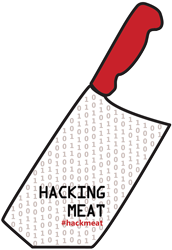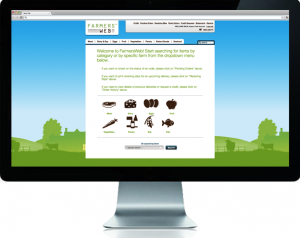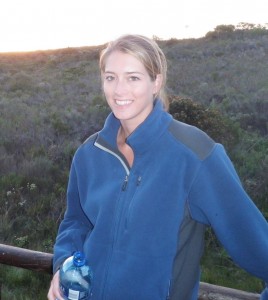
Hacking Meat is an online conversation exploring how can information and technology be used to hack (or reimagine) a more sustainable, profitable and healthy future of meat. Join the conversation and share your ideas or product requests in the comments, on Twitter using #hackmeat, on Facebook or at the Hack//Meat hackathon happening December 7-9 in NYC.
Guest Post by Jennifer Goggin of FarmersWeb
 Buying and selling fresh meat is a delicate thing. Small farms don’t raise steaks; they raise animals. One cow can only produce a limited number of steaks. Restaurants that go through 50 orders of a particular dish every night need to buy that cut in volume. From the other perspective, farms have a very small window of time to sell every piece of an animal once it has been slaughtered and processed. If a farm takes an order, then schedules and slaughters the animal only to have the buyer back out, the farm needs to immediately sell the meat to another buyer or face having a freezer full of cuts, which is not so easily sold.
Buying and selling fresh meat is a delicate thing. Small farms don’t raise steaks; they raise animals. One cow can only produce a limited number of steaks. Restaurants that go through 50 orders of a particular dish every night need to buy that cut in volume. From the other perspective, farms have a very small window of time to sell every piece of an animal once it has been slaughtered and processed. If a farm takes an order, then schedules and slaughters the animal only to have the buyer back out, the farm needs to immediately sell the meat to another buyer or face having a freezer full of cuts, which is not so easily sold.
When my partners and I first started FarmersWeb, an online marketplace, we wanted to tackle some of these challenges that many meat producers face. To begin, we built a system to let farms accept advanced orders along with a deposit from wholesale buyers. The deposit is held in escrow through online credit card processing, which gives the buyer peace of mind that their deposit will only be cashed once the farm delivers the product, and also incentivizes the buyer to follow through on their order. Should the buyer wish to cancel their order and the farm is able to find another customer for that meat, the deposit can be returned. This system provides assurance to the farm that in the event of cancellation, they won’t be left holding the bag, so to speak.
Furthermore, farms can list their upcoming expected fresh meat products online where buyers can see, in real time, what is available and place their order. This not only helps the farm manage their inventory numbers, but also helps the buyer plan their menus around what local protein will be available. One of the problems we observed in farm-to-table ordering stemmed from poor communication, unclear expectations and inability to plan. Listing upcoming available products online eases this tension on both sides of the sale.
However, although a good start, this is not enough to solve what I believe is the crux of the issue, at least for fresh meat—what about the buyer who wants to buy local meat, but cannot handle a whole animal and all the cuts that it represents? What about the restaurant that has a popular braised short rib dish on its menu, but a single small farm cannot supply the amount of short ribs per week without selling the rest of the cuts that would result from those animals? Why can’t wholesale buyers form buying clubs to split up a whole animal so everyone gets what they need and nothing more? Here is another great opportunity for technology to enhance the communication and coordination that something like this would require. Imagine if there were a site or app on which a farm (or the farm’s slaughterhouse) could create a digital copy of their cut sheet, and buyers could reserve pieces that they want to purchase. As soon as a group of buyers reserves every piece of a single animal, the farm will move ahead with the slaughter.
One final note: much of the challenge around selling and buying fresh meat has to do with consumer demand—so if we as individuals are more willing to try an unfamiliar cut (liver or tripe, anyone?), or embrace the concept of an ever-changing menu (even up to the hour), then restaurants could in fact buy a whole animal themselves and work their way through the parts. Technology can make such sales easier, but restaurants will be more likely to take the risk if we as patrons support them.
How can technology enhance the communication and coordination of buying and selling whole animals? Let us know on Twitter using #hackmeat, on Facebook or at the Hack//Meat hackathon happening December 7-9 in NYC.
___________________________________
 Jennifer Goggin is a co-founder and CEO of FarmersWeb, an online marketplace that connects local farms and wholesale buyers. Jennifer got her start in the food industry as the Director of Operations for Basis Farm to Chef, a New York City based distribution company specializing in locally grown products. She has participated in the WWOOF program in Italy and is involved with Just Food in New York City. Jennifer is always looking for more ways to help solve local food issues.
Jennifer Goggin is a co-founder and CEO of FarmersWeb, an online marketplace that connects local farms and wholesale buyers. Jennifer got her start in the food industry as the Director of Operations for Basis Farm to Chef, a New York City based distribution company specializing in locally grown products. She has participated in the WWOOF program in Italy and is involved with Just Food in New York City. Jennifer is always looking for more ways to help solve local food issues.



Pingback: Hacking Meat: An Online Conversation Exploring The Future of Meat » Food+Tech Connect